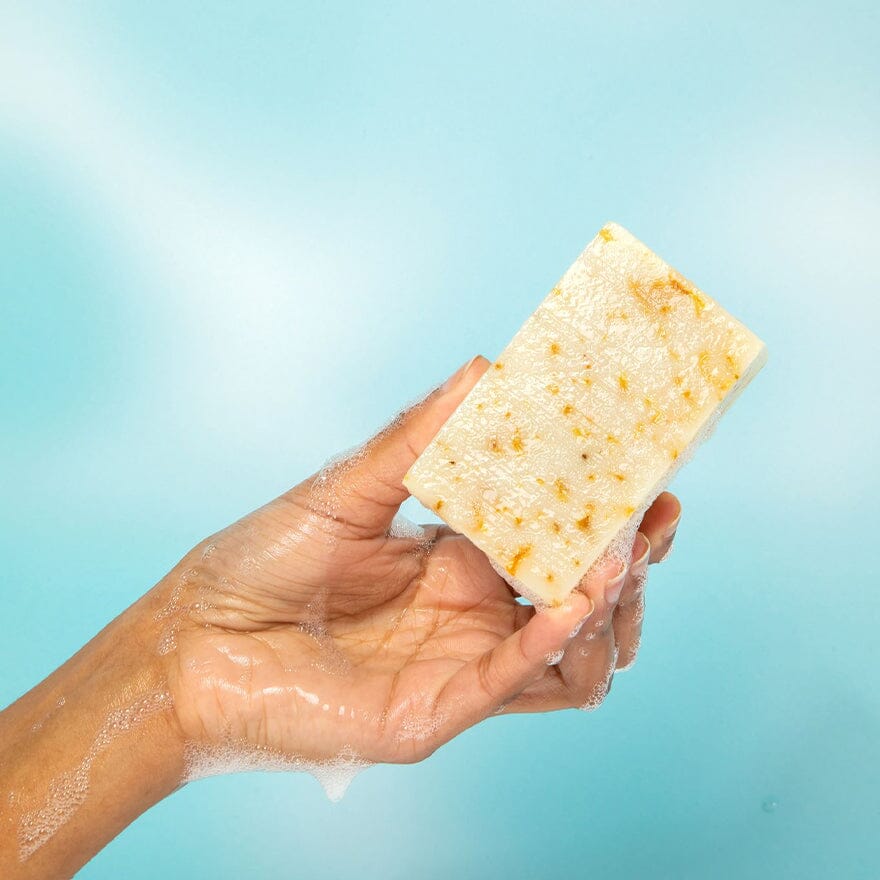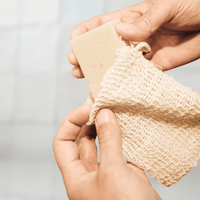
Was your bathroom growing up always stocked with bar soap? Or was your family strictly on team body wash? If you were raised in a body wash family, you probably don’t have much experience sudsing up with body soap bars — and vice versa. But perhaps you’ve been thinking about venturing to the other side, and it’s got you curious: Is one body cleanser better than the other?
The truth is that each bathing product has its unique pros and cons. In this article, we'll take a closer look at the bar soap versus body wash debate so that you can lather up in the shower in the healthiest way possible.
Bar Soap vs. Body Wash: Which One Gets You Cleaner?
If your primary concern is getting clean, rest easy. Bar soap and body wash are equally effective at removing dirt, oil and bacteria from the body. Like all types of mild soaps, bar soap and body wash use cleansing agents — known as surfactants — to help lower water surface tension and break up the molecular barriers that cause oil and germs to stick to the skin. In other words, they make your body feel slippery and make it easier to wash away the dirty, germ-laden oils on your body.
The key difference between the two body cleansers comes in the form they take and their ingredients. True bar soaps, such as our plant-based body soap bars, are by definition a surfactant. They go through a process called saponification, where fats and oils are mixed with an alkali base. The end result is a solid cleanser made from natural, biodegradable ingredients — like coconut oil mixed with shea butter and other emollients.
In contrast, body washes come in liquid form and typically use synthetic surfactants, such as petroleum-derived sodium laureth sulfate and lauryl sulfate. While effective at cleaning the skin, these synthetic surfactants are made from fossil fuels and therefore come at a steep cost to the environment.
Which Body Cleanser Is Better for Skin Health?
Once again, it’s a bit of a wash (pun intended). We all have different skin types and needs, so picking the right product for your skin really comes down to what you’re looking for in a body cleanser.
Here is a quick breakdown of when you might want to choose one body cleanser over the other.
Use bar soap if you have sensitive skin
If you think you’re doing your sensitive skin a favor by using a “nourishing” body wash, think again. In a published study comparing the 50 top-selling bar soaps and the 50 top-selling body washes, researchers concluded that bar soaps are less likely to contain allergens that cause contact dermatitis.
Bar soap tends to contain fewer ingredients — and fewer preservatives in particular — making it a better choice for those with sensitive skin. These days, you can also find bar soaps specifically formulated for eczema, psoriasis and other skin care conditions.
Use body wash if you want maximum hydration
Is your skin perpetually dry and flaky? A moisturizing body wash can make a huge difference to parched skin. Body wash tends to contain hydrating ingredients that help seal in moisture and gently cleanse the skin without over-drying. For best results, look for a body wash with hydration-boosting ceramides and steer clear of alcohol, artificial fragrances and sulfates.
Avoid antibacterial body washes and bar soaps
Whether you lean towards team body wash or are a loyal bar soap user, most experts agree that anything labeled “antibacterial” is a no-no for your skin. Antibacterial body washes and soaps are no more effective than regular body cleansers. Even worse, they may contain added chemicals that can irritate and dry out your skin.
Which Is More Environmentally Friendly?
Regarding eco-friendliness, experts generally deem bar soap the more sustainable option. Why? Because good-old fashioned bar soap comes in solid form, eliminating the need for wasteful plastic packaging. Meanwhile, body washes tend to come in virgin plastic, which is more likely to end up in a landfill than it is in the recycling bin.
Bar soap is also waterless, making it more compact and lighter to transport, which ultimately translates to a lower carbon footprint. As a bonus, it has a longer shelf-life, making it more affordable over time than liquid body wash.
Want the Best of Both Worlds? Try a Body Wash Bar
For those who want the silky-smooth hydration of body wash, but without the toxic chemicals and environmental drawbacks, look no further than our plastic-free body wash bar. Made with naturally-derived ingredients that work for all skin types, our beautiful body wash bars are jam-packed with nutrient-rich oils and butters that gently cleanse your skin without stripping away its natural oils. They are free of SLES, SLS, artificial fragrance and dyes, chemical preservatives and other harmful ingredients you don’t want anywhere near your skin.
Besides being good for skin health, our body wash bars are good for the Earth. They come wrapped in 100 percent recyclable and compostable packaging, and we ship your package entirely plastic-free as well. We are proud to be climate neutral certified!
Shop Our Plastic-Free Body Wash Bar
Final Thoughts on Bar Soap vs. Body Wash
With consumers becoming increasingly concerned about the environment and the potentially toxic ingredients in their personal care products, we expect to see more people joining team bar soap in the coming years. But if you’re not ready to give up your beloved body wash, fear not — body wash bars can give you the moisturizing benefits you love while preserving our wonderful little planet.







